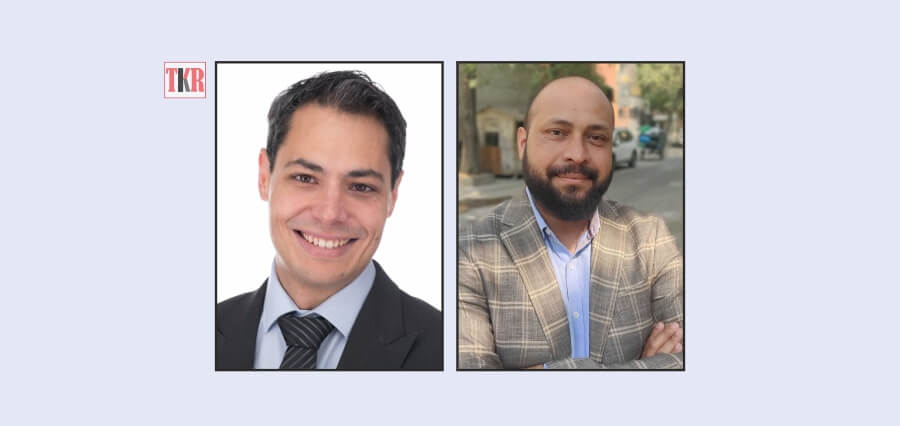English is the language of science, aviation, computers, diplomacy, and tourism. Harnessing the power of the English language improves the odds of getting the right career with a global corporation within the country or overseas. It is also the universal language for correspondence, media, and the Internet, so learning the English language is important for culture, entertainment, and jobs!
Hence, while on the lookout for Global Educational Influencers, we came across Prompt which helps students to master English writing abilities.
The following conversation with the team of Prompt highlights the strides that the firm is making over the nation.
Introduce us to Prompt. What is its exact functionality?
Prompt delivers writing coaching and feedback. Students can either take our English writing skills courses or get support on what they are writing for class or for college admissions. We do most of our work in partnership with educational institutions (K-12, Higher Education) and tutoring companies. However, we also work directly with students.
What are the Mission(s) and Vision(s) of Prompt? Kindly elaborate on its organizational goals.
Our mission is to make people better writers. Our goal is to transform how students and professionals learn to write and continuously improve their writing. We provide writing instruction, coaching, and feedback throughout the writing process – from planning to revising.
We focus on building Writing to Learn skills that help people synthesize and understand the information within and across sources. The skills we build are generalizable and transferable to any subject across education and the professional workforce.
Brief us about Brad’s (CEO) and Mark’s (Director) professional journey and their role in Prompt’s expansion?
Brad is one of Prompt’s founders. Brad founded Prompt after graduating from MIT and spending nearly five years at McKinsey. Mark joined Prompt in 2019 after serving as a Senior General Manager at Manya Group.
Brad started Prompt because of his personal experiences improving as a writer by getting frequent feedback on higher-order writing skills. He also saw that many of his clients at McKinsey struggled to communicate their thoughts due to inadequate written communication skills. Mark joined Prompt because he saw students and professionals in India struggle with written communication.
What motivates Brad and Mark to get up in the morning and get to work?
We love seeing the impact we have on students – in their writing abilities and success in life. To date, we have helped more than 10,000 students improve their college admission essays, helping them achieve their dreams. Now, we are focused on supporting the billions of
struggling writers globally who could greatly improve their educational and professional prospects by improving their writing skills.
How is Prompt, making a difference in the ‘Writing Feedback’ domain? How does it stand out from the rest of its competitors?
Our biggest differentiator is our focus on higher-order writing skills (content, structure, clarity). Most writing companies focus on surface-level issues (e.g., grammar). The writing research shows that surface-level feedback does not improve writing abilities long term.
Providing feedback on higher-order writing skills is very difficult and time-intensive, which is why we accept fewer than 2% of the thousands of writing coaches who apply to be in our network.
What kind of challenges have Brad and Mark faced during the establishment of Prompt? How are they dealing with the prevalent and upcoming issues?
We have come across two major challenges when building Prompt:
- The world’s education system is not structured to support writing
- The world’s education system is not structured to support writing
These challenges exist because most educators do not have the skills, knowledge, or mindset to teach writing (the “Educator-variability Problem”) and because educators do not have the time required to teach writing, especially assessing and providing feedback on individual student writing (the “Educator-time Problem”).
Combined, the educator variability and time problems lead students to believe they are good at writing because they get little feedback on higher-order writing skills (content, structure, clarity).
How has the COVID-19 outbreak affected the global writing space and how is the duo handling the situation with concern to the writing feedback domain?
The long-term effects of COVID-19 will be an increase in remote work and online learning. Writing skills are critical in both environments. Before COVID-19, 75% of all workplace communications were virtual and 50% of all written communications are misinterpreted. In online learning, we expect more blended learning education that combines in-person and online support as well as many online-only courses.
We are positioning ourselves to be an integral component for improving writing skills for students and professionals.
What future holds for Brad and Mark in terms of personal and professional growth?
We have a long road ahead of us to impact writing skills in India and across the world. We’ve more than doubled our revenue and employee base every year. We are also rapidly expanding our offerings to run online writing skills courses based on the best ways to teach writing skills. We are excited to continue our expansion, grow our management skills, and have a lasting impact on the way people think and write across the world.









